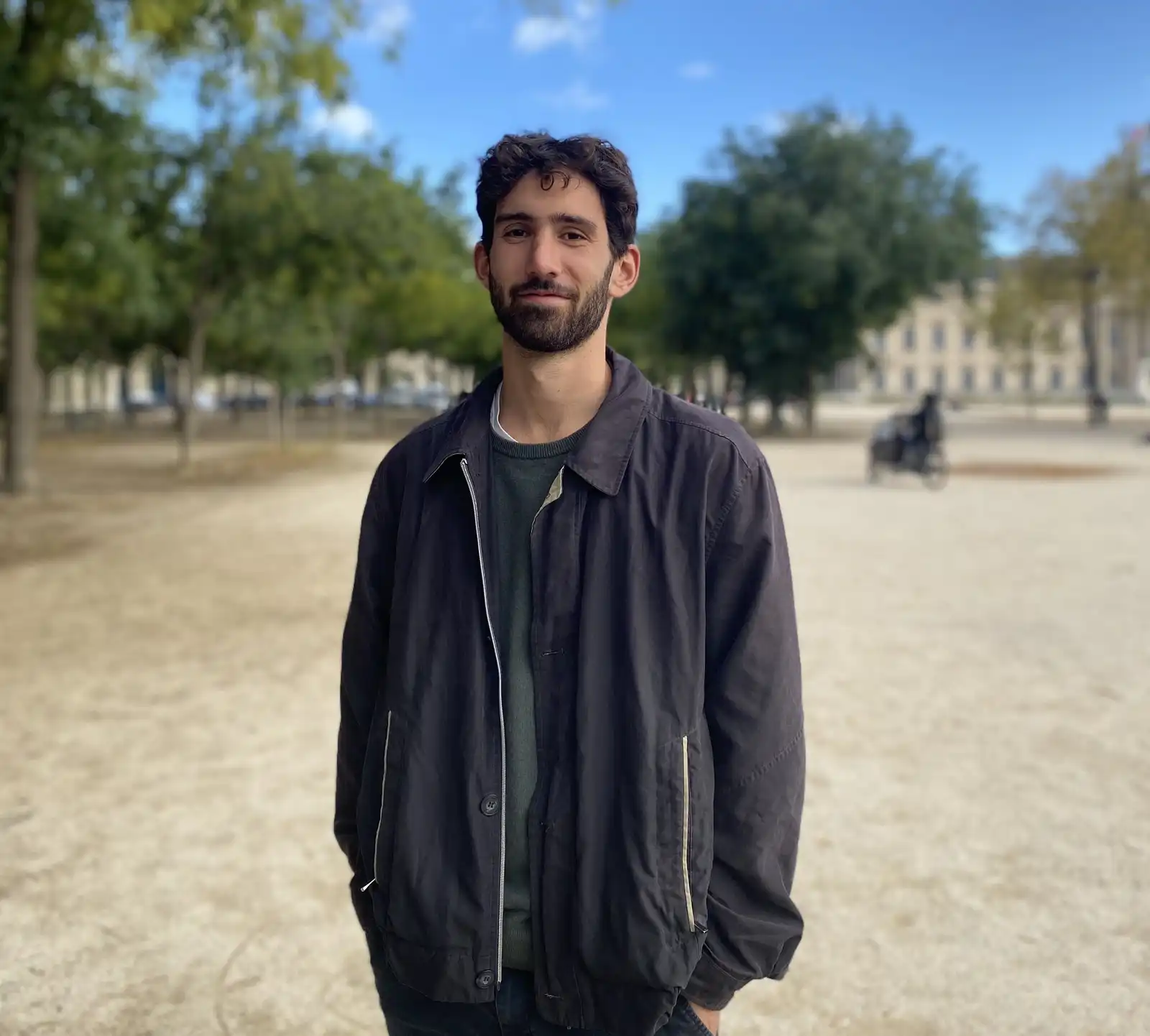Home>Student in apprenticeship: Jonathan Motte
07.10.2025
Student in apprenticeship: Jonathan Motte

Jonathan is currently in his second year of the Master's programme Governing Ecological Transitions in Cities (GETIC) and is an ISR project manager at AEW through an apprenticeship. Learn more about apprenticeship at the Urban School.
What was your journey leading up to your current role?
Prior to my master’s, I spent three years studying political science and sustainability at Concordia University in Montreal. The program’s flexibility was invaluable, as it allowed me to work part-time for most of my undergraduate studies: first as a researcher for Concordia's student union, where I advocated on behalf of students on issues such as housing and disability justice, and later as a project agent at Vivre en Ville, a public interest organization specialized in improving Quebec’s urban planning practices, both socially and environmentally.
This experience was pivotal. I discovered the field of urban planning and realized it brought together everything I had been learning into one subject. At the same time, I was involved in several student organizations: Model UN, Concordia’s student tribunal, its soup kitchen, McGill’s bike collective, and various advocacy groups. These experiences directly influenced my choice of master’s program — I knew I needed something that blended urban planning, sustainability, and political science. Sciences Po’s Urban School stood out as a natural fit.
My first year of master’s studies opened up new possibilities, especially through the Capstone project, during which our group created a model estimating the cost of flooding damage on residential buildings (now available at inondact.com !). When the administration later announced the option of pursuing a work-study program, I jumped at the opportunity and sought similar positions that combined technical skills, sustainability, and the real estate sector.
What are your daily responsibilities, and what do you enjoy the most?
My job centers on three main objectives: 1) lowering the carbon footprint of AEW’s real estate fund, 2) reporting this progress, and 3) continually improving how we achieve steps 1 and 2.
More specifically, the SRI (socially responsible investing) team I work with analyzes the company’s building stock and develops actionable recommendations to reduce energy, water, and waste emissions. These measures can include installing heat pumps, LED lighting, solar panels, or removing gas-powered systems. We evaluate which actions are most impactful and cost-effective. In parallel, we report on this work to external labels, certification bodies, and regulators such as the European Union and the French government.
I was interested in this role, and the real estate sector in particular, because every recommendation is quantifiable — whether measured in kWh, kg of CO2eq, or m³ of water. Nothing relies on vague metrics. Working with a team that models these figures is both challenging and rewarding, as it allows me to look behind the curtain of methodologies that are increasingly shaping how sustainability is defined and implemented.
Are there specific skills or lessons from your education that you find particularly valuable in your current role?
The capstone project we completed was nothing short of instrumental. Over nine months, together with four other students, we immersed ourselves in a crash course blending civil engineering, flood risk, real estate economics, and modeling. We built a website, presented our model to field experts in a webinar, and left with a sense of pride that continues to inspire ongoing improvements to Inond’Act. This project pushed me toward my current role and continues to help me navigate the technical environment I work in every day at AEW.
What advice would you give to current students pursuing a similar career path?
Do the opposite of what you’re good at during your masters. You’ll spend most of your professional life specializing in one field, so use these final years of study to better the areas where you still struggle. For me, that was quantitative analysis. Whatever it may be for you, take the challenge — so that you graduate with fewer blind spots in your skillset and are better prepared to confidently drive the change every industry needs!
Information Sessions: Masters

Find out more about the Masters programs and the wide choice of specialisations offered by the 8 Schools of Sciences Po during our webinars dedicated to applicants.